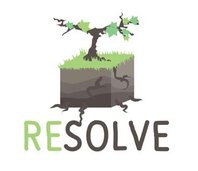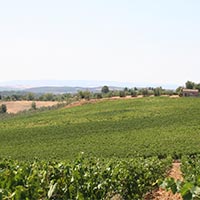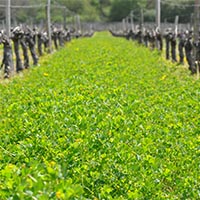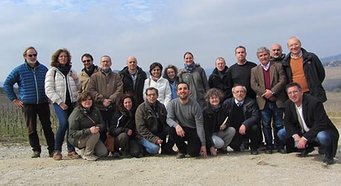ReSolVe
Restoring optimal Soil functionality in degraded areas within organic Vineyards
Background
Land transformation to adapt fields to mechanization is a common practice in perennial crops, and it includes land levelling, deep ploughing, stone-breakage, etc.
Since soil variability is usually high, soil manipulation frequently results into reduced soil fertility, water retention capacity and soil biodiversity.
It’s not uncommon that, because of land transformation, soil erosion and compaction, both organic and conventional viticulture can have areas having been reduced vine growth, disease resistance, grape yield and quality.
Main project activities
- Testing the effects of the soil treatments on grapevine health and grape yield
- Testing the effects of the soil treatments on carbon stock and soil fertility
- Testing the effects of the soil treatments on soil ecosystem (micro- and meso-fauna)
- Testing the effects of the soil treatments on vine roots microbiology
- Increase the awareness of the soil functionality loss in the vineyards, both organic and conventional
- Providing protocols and information to the European farmers about best practices to restore soil functionality in vineyards
Benefits and results
Expected societal benefits of the project
The project outcomes want to increase the awareness about the soil functionality degradation and its effects in vineyards and other perennial crops. The message is also addressed to conventional viticulture, which is also interested to recover the soil functionality of some degraded areas in the vineyards. The demonstration that techniques derived from organic agriculture can be successfully adopted in conventional viticulture could induce greater interest of organic farm management. The study about the effects of soil restoring techniques and their dissemination to the farmers will contribute to add value in terms of landscape conservation and agri-cultural heritage systems.
Expected outcomes, results and impact
The ReSolVe project will provide guidelines for restoring optimal soil functionality in vineyard and, in general, in other perennial crops, through organic soil management strategies. The restoration techniques and the monitoring methodologies developed and tested during the project will be described in specific final guidelines.
The second result from the project is setting a comprehensive protocol of analyses and measurements for vineyard ecosystemic functioning assessment, tuned to European vineyard conditions.
Expected long-term impact
The awareness of the soil functionality loss in vineyards, coupled with the dissemination of best-practices for restoring optimal soil functionality for grapevine, will contribute to make European organic vineyards more homogeneous in terms of efficiency, grapevine health and soil ecosystem services.
How to reach target groups
A series of training workshops will be carried out, involving operational groups, grape-growers, confederations, agronomists and specialists. At the end of the project, guidelines for soil restoring techniques will be published in all the project partner languages and also in English.
More about the project
Coordinator of Resolve
- Edoardo Costantini, Mail: edoardo.costantini@crea.gov.it




Project partners
Maarten van Helden, Bordeaux Sciences Agro, France
Emma Fulchin, Vitinnov, France
Javier Tardaguila, University of la Rioja, Spain
Semih Tangolar, University of Cukurova, Turkey
Mehmet Erdem Kiraz, Alata-Bkai Horticultural Research station, Turkey
Anna Martensson, SLU-SwedishUniversity of Agricultural Sciences, Sweden
Hans-Josef Schroers, KIS-Agricultural Institute of Slovenia, Slovenia

The project ReSolVe is funded by ERA-Net CORE Organic Plus Funding Bodies partners of the European Union’s FP7 research and innovation programme under the grant agreement No. 618107.
